When conditions are favorable, it can take at least 24 hours for a sealed driveway to dry completely. However, should you be concerned if it rains 12 hours after you sealed your driveway? We researched the impact of such an occurrence and what to do if any damage occurs.
During good weather, a driveway should dry between four and eight hours. When the weather is most favorable, four hours should be enough. But during bad weather, if it rains 12 hours after you sealed your driveway, do the following:
- Wait until the rain stops and examine your driveway.
- If you see dull patches, seal them again.
- If the dull areas are large, seal the whole driveway again.
Keep reading to learn what to do if it rains 12 hours after you sealed your driveway. Find out the best conditions for your driveway to dry fast. You'll also learn about other reasons besides unfavorable weather that will prolong the drying time of your sealer and how often you should use the sealer.
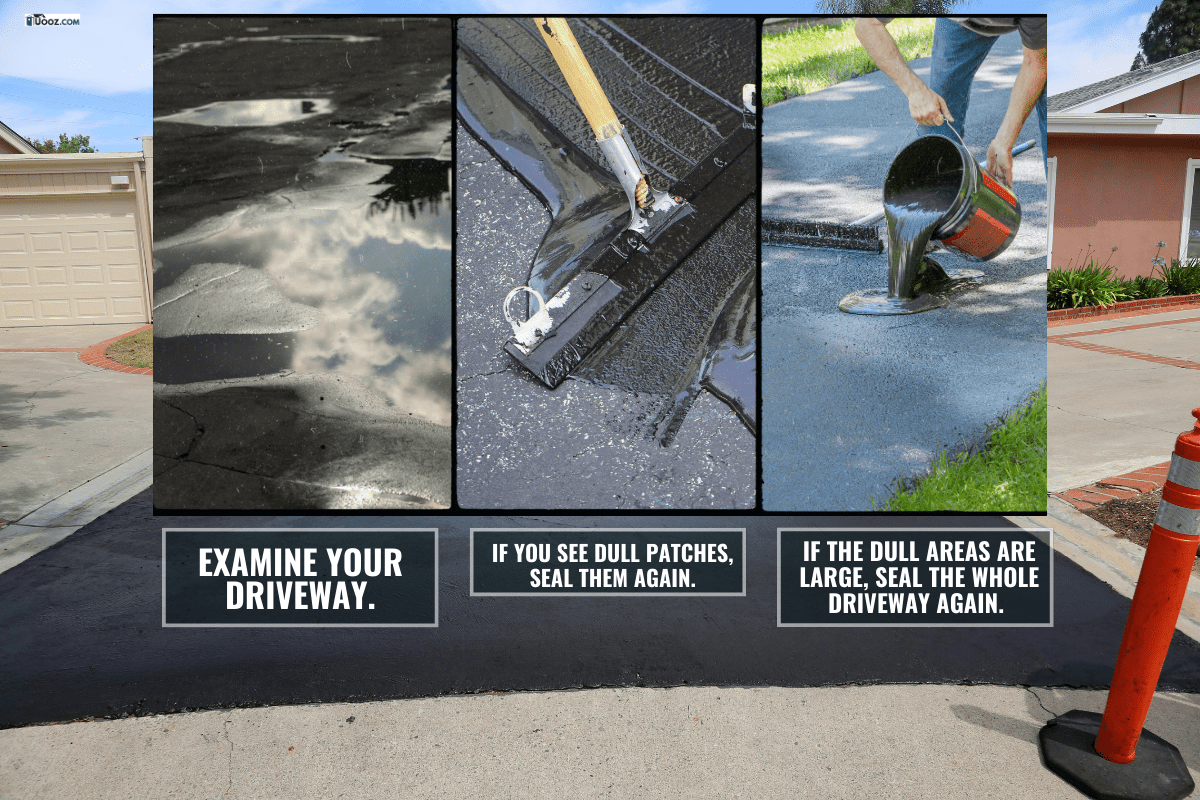
What To Do When It Rains 12 Hours After Sealing Driveway
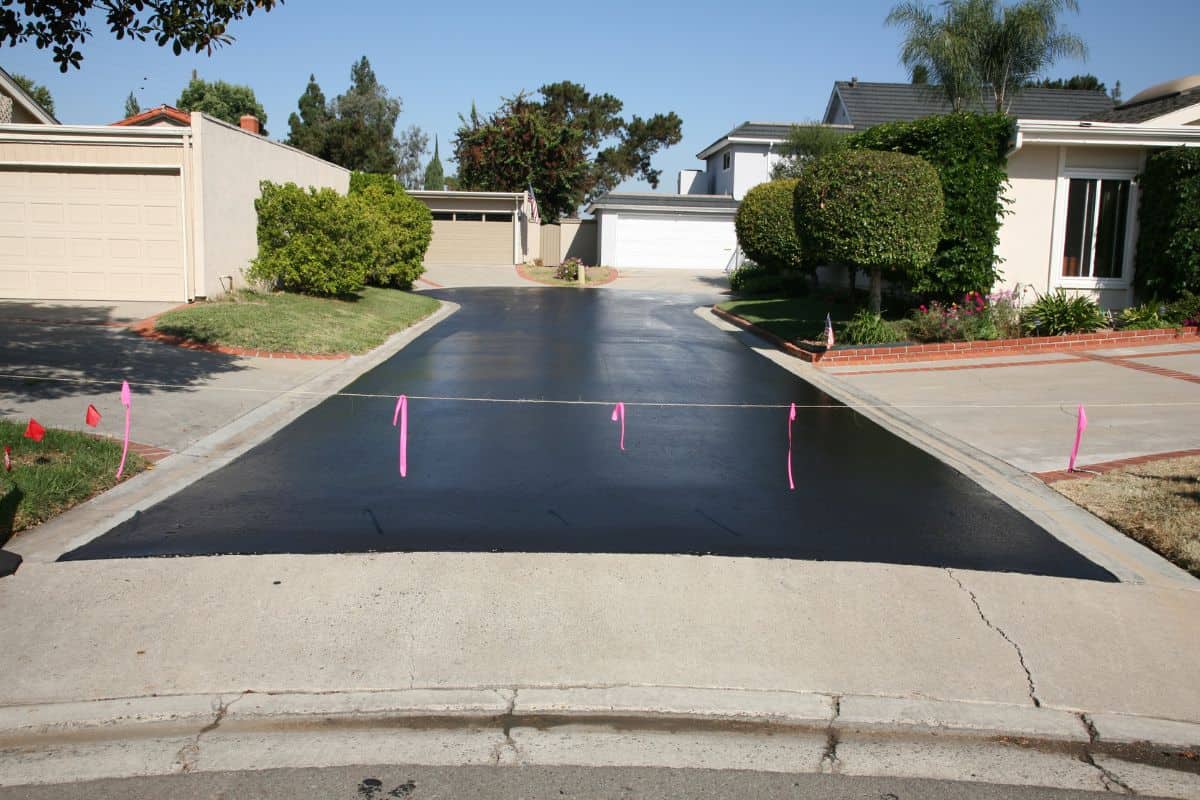
You need to check the weather forecast before sealing your driveway. That way, you can seal it without worrying that it will pour, resulting in a well-sealed, neat driveway.
Sometimes the weather does not turn out as predicted, and it may rain before your driveway dries. But rain is not the only thing you should be worried about. You should turn off the water from your sprinklers, hose pipes, or any other water source around your home.
No rain or water should come in contact with your driveway before drying. Water could cause damage. But if rain or other water sources turn out to be a problem, you can still do something about it, as explained below:
Wait For The Rain To Stop
There's nothing much you can do when it starts raining. Be patient and wait for the rain to pass, and then check your driveway to establish the extent of the damage, if any. You can solve this issue in two ways:
Re-Seal The Dull Patches
If the sealer has been washed off in some parts, you will need to re-seal these areas. Start by removing any debris that might have washed onto your driveway.
Use a garden hose to spray water on the driveway to remove any unwanted debris while cleaning it. Afterward, wait for the driveway to dry completely. If the weather is sunny, this could take two to four days.
If the weather is unfavorable, wait until it changes and then patch up the areas where the sealer washed off. Don't drive on your driveway until it is completely dry, which usually takes 24 to 48 hours. You may walk on it six hours after it dries.
Reseal The Entire Driveway
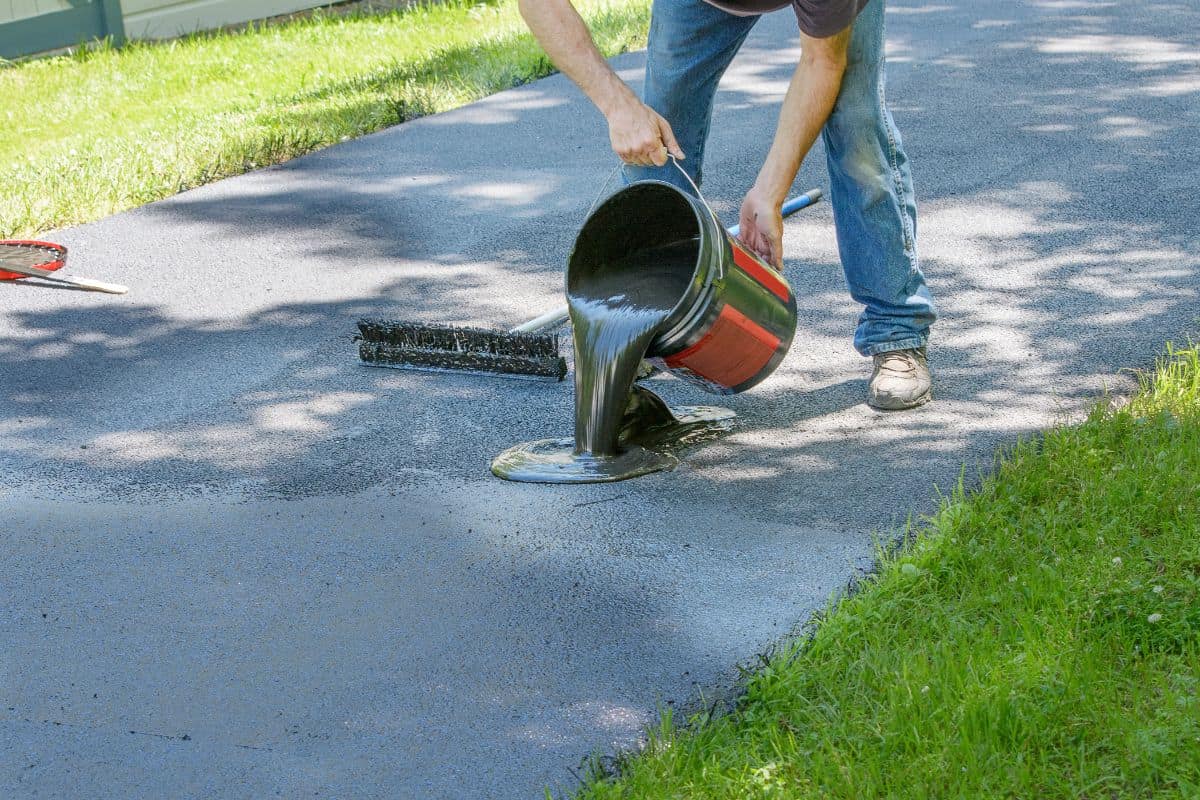
If the rain washed away most of your driveway, you need to seal the entire driveway again. Also, in this case, wait for it dry before applying a new coat of sealant.
Best Conditions For A Dry Driveway
For a great-looking driveway, you need to seal it when the weather is good. Ideally, the most suitable weather conditions are:
Temperatures Above 50 Degrees Fahrenheit
The temperatures should be above 50 degrees Fahrenheit. This is because when it is cold, the sealant will not adhere properly to the surface. Instead, it will crack and start forming potholes. Thus, it's best to seal your driveway in the fall or spring.
A light breeze is fine, though you should not seal when it is windy. The wind can divert the direction in which you spray the sealant, landing on structures nearby and causing a bigger mess.
Humidity Levels Below 60%
The sealant dries when the water in it evaporates into the atmosphere. High humidity levels mean the air is saturated with moisture, which can increase the drying time. Humidity levels should be as low as possible but not higher than 60% if the sealant is to dry faster.
Factors That Prevent Sealant From Drying Fast
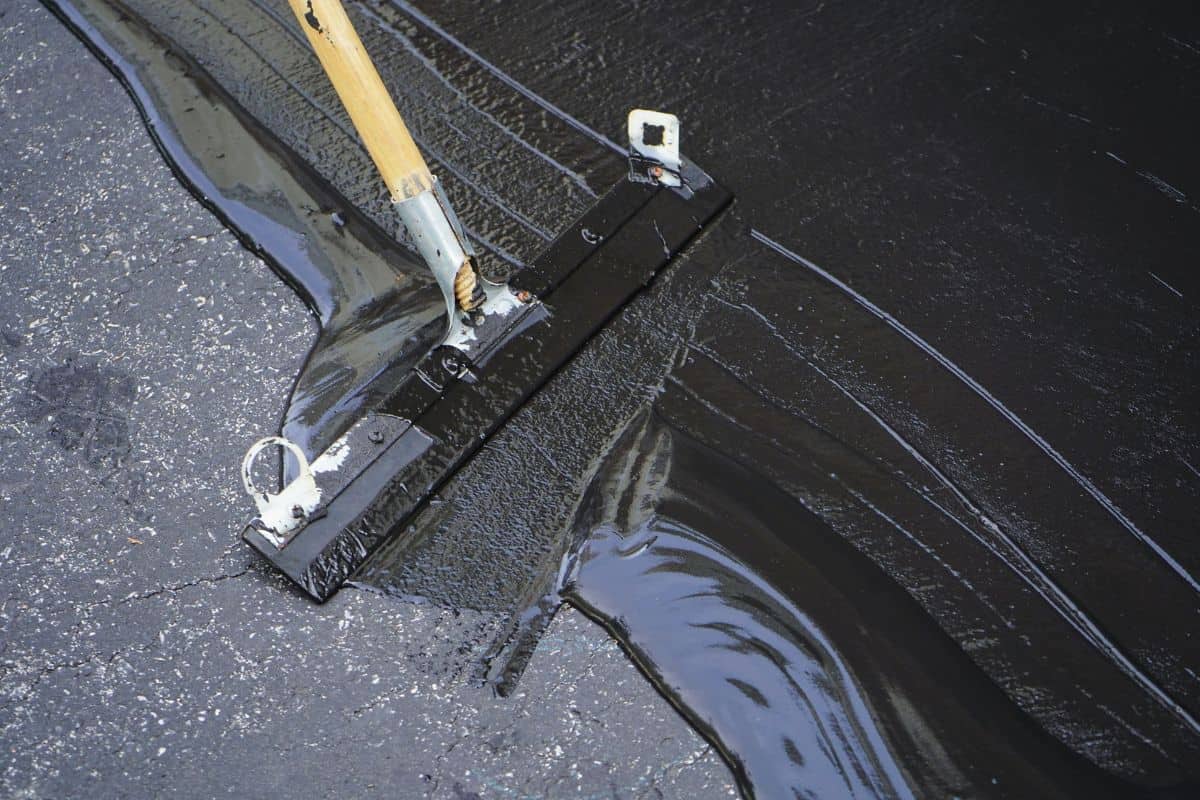
Other than bad weather, there are other reasons the sealant you apply on your driveway may not dry fast. They include:
New Driveway
Driveways are made from different materials, including concrete and asphalt. If yours is made from concrete, you should wait a month for it to dry properly before applying a sealer.
This is because concrete contains moisture that must evaporate during the curing process. It needs to be dry and solid before you seal it.
If your driveway is made from asphalt, wait 60 days before sealing it. Asphalt consists of oils that can prevent the sealer from drying well and prolong drying time.
Regardless of the material your driveway is made from, if it's new, you should find out how long it will take to dry.
Thick Coat Of Sealer
Check out this driveway sealant on Amazon.
You should apply a thin coat of sealer, wait 12 hours, and then apply a second coat. Applying two thin coats is better than applying one thick coat, which can take longer to dry.
Low-Grade Sealer
Don't expect good results with a low-grade sealer. If it's not of good quality, it may not dry well. Though you may manage to apply it days or even weeks before it rains, it may still be washed away.
That is why you need to learn more about the products you or the company you have hired intend to use. It will safeguard you from using a low-quality sealer.
How Often Should You Re-Seal Your Driveway?
The number of times you need to reseal your driveway depends on the weather in your area and the material. It also depends on the amount of traffic on the driveway. Ideally, you should reseal your driveway every one to three years.
You should not wait beyond three years to reseal your driveway, or it could start deteriorating. Also, resealing yearly is not recommended because the driveway could chip and flake.
However, if you notice dull patches, cracks, or any other type of damage, then it's time to reseal. You don't have to wait until the recommended time.
How Much Does It Cost To Seal A Driveway?
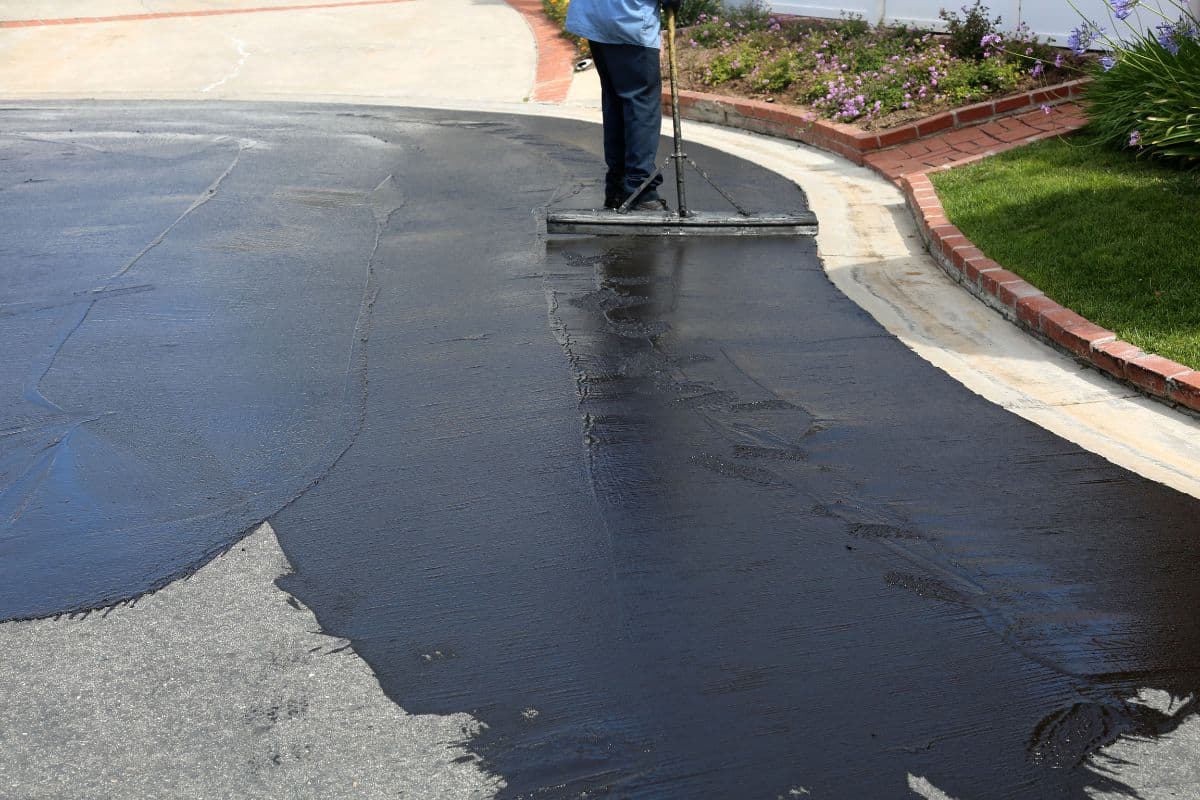
The average national cost of sealing a driveway is $305. The least amount you are likely to pay a contractor is $110, while the price can go as high as $1,230.
If you seal a concrete driveway, you should expect to pay between $0.85 to $2.13 per square foot. The price range for sealing an asphalt driveway will cost you between $0.15 to $0.23 per square foot.
Some contractors add the cost of cleaning and repairs into the overall cost of sealing your driveway, while others do not. Since cleaning is not a difficult task to carry out, you can save money by cleaning it yourself.
Check out this stiff-bristled broom on Amazon.
If you prefer to hire a contractor to do the cleaning or a pressure wash, expect to pay between $0.27 to $0.39 per square foot.
A contractor will also charge you around $4 per square foot to repair damage on the concrete before sealing. If you have an asphalt driveway, you will pay around $3 per square foot.
In Closing
You can maintain the life of your driveway by sealing it often or as soon as damage appears. For your driveway to look appealing, seal it when the weather is bright and sunny.
You should apply sealer before it rains. Otherwise, your driveway may be damaged. Besides ensuring the weather is good, other reasons can interfere with the sealer drying on time, such as using a low-quality sealer.
The cost of sealing your driveway depends on several factors during the planning process.
If you found this post helpful, you may want to check out some of our previous posts:


